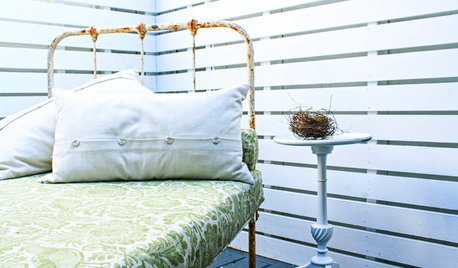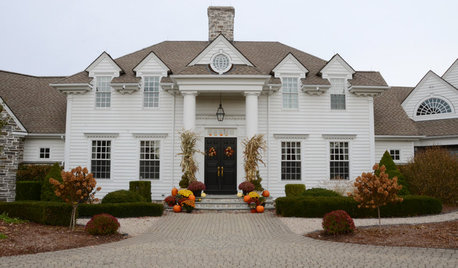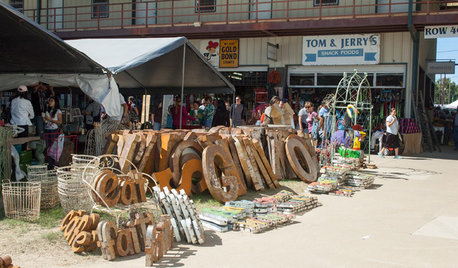Weekend Trivia - Sunday
midnightsmum (Z4, ON)
11 years ago
Related Stories

LIFESimple Pleasures: The Big Sunday Lunch
Make Sunday afternoons special with a casual, stress-free meal where friends and family pitch in
Full Story
MORE ROOMS12 Mega-Media Rooms for Super Bowl Sunday
Imagine Watching the Big Game in One of These Over-the-Top Home Theaters
Full Story
MOST POPULAR10 Steps to a Happier Weekend
Savor your precious days off while still checking off to-do’s by following this simple plan
Full Story
HEALTHY HOMEEasy Green: Weekend Detox for Your Home
A few small changes to your home over the weekend can help improve your health (and your cash flow) every day
Full Story
EVENTSGet Inspired at the 40th Annual American Craft Council Show
In San Francisco this weekend? Celebrate modern design and craft at the West Coast’s largest show of handmade creations
Full Story
LIFEReluctant DIYer’s Diary of a Dresser Makeover
Weekend project: Glossy new black-and-white dresser, hold the sandpaper
Full Story
MY HOUZZMy Houzz: Traditional Style Shines in a Connecticut Home
Ample room for entertaining and traditional touches come together in this NYC couple’s weekend retreat
Full Story
HOUZZ TOURSMy Houzz: Relaxing Retreat on a River in Maine
Windows wrap a couple's light and airy weekend home to provide stunning views of the Piscataqua River
Full Story
INSIDE HOUZZWhat Mom Wants for Mother’s Day
You’re right about a nice dinner and time with family. Here’s what else will make Mom happy this weekend
Full Story
EVENTSTreasure Hunting at Texas' First Monday Trade Days
Check out some of the antiques, art and collectibles on offer at one of the largest flea markets in the U.S.
Full Story





cyn427 (z. 7, N. VA)
mnwsgal
Related Professionals
Fitchburg Landscape Architects & Landscape Designers · Fort Lee Landscape Architects & Landscape Designers · Waterbury Landscape Contractors · Annandale Landscape Contractors · Burien Landscape Contractors · Columbine Landscape Contractors · Framingham Landscape Contractors · Mount Kisco Landscape Contractors · Red Oak Landscape Contractors · Clearfield Landscape Contractors · California Roofing & Gutters · Chicago Ridge Roofing & Gutters · Channahon Roofing & Gutters · Massapequa Siding & Exteriors · Menomonee Falls Siding & Exteriorsthinman
aftermidnight Zone7b B.C. Canada
midnightsmum (Z4, ON)Original Author
cyn427 (z. 7, N. VA)
midnightsmum (Z4, ON)Original Author
thinman
midnightsmum (Z4, ON)Original Author
cyn427 (z. 7, N. VA)
midnightsmum (Z4, ON)Original Author
thinman
cyn427 (z. 7, N. VA)
mnwsgal
aftermidnight Zone7b B.C. Canada
thinman
mnwsgal
midnightsmum (Z4, ON)Original Author
mnwsgal
thinman
cyn427 (z. 7, N. VA)
midnightsmum (Z4, ON)Original Author